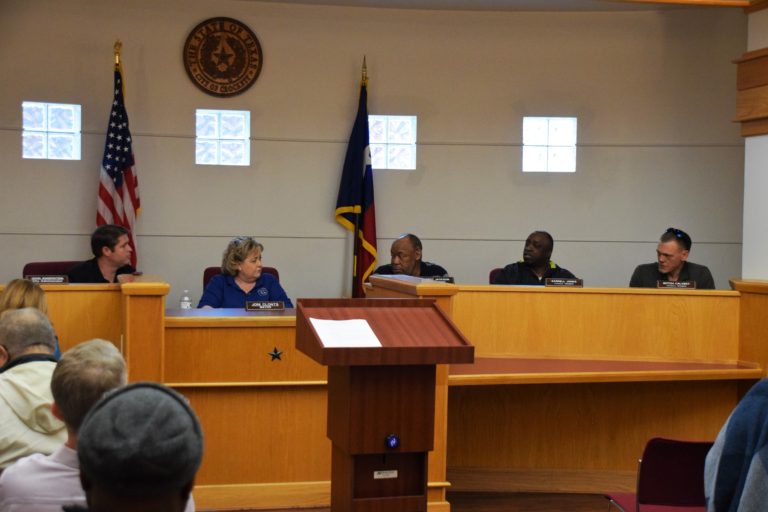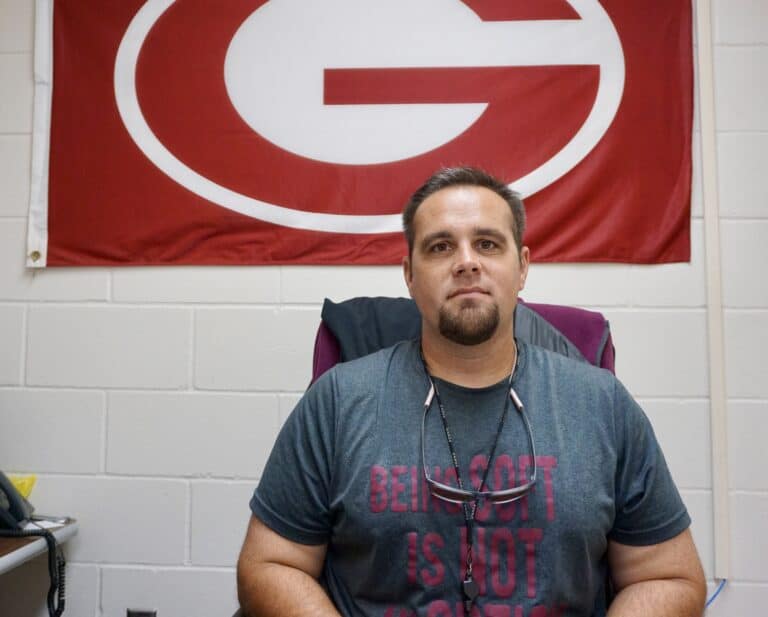Crockett City Council Delays Funding for Police Units

By Greg Ritchie
Messenger Reporter
CROCKETT – Crockett City Council met Monday, Nov. 6 to discuss the process to update the city charter and tabled several tasks, including funding for new patrol units for Crockett Police Department. (CPD)
The council heard from Crockett City Administrator John Angerstein, who explained the delay in updating the city’s charter, as recently reported by The Messenger. Angerstein explained many cities use a “City Manager” organization, where a manager for the city hires and fires city officials such as the police or fire chief, and the council appoints other officials such as the city attorney. Since Crockett has established the city council will hire and fire all important city officials, Angerstein was informed by the consultant working for the city he was not interested in deviating from his usual plan and he and the city parted ways. Angerstein said he is confident the city will find a new consultant to help them with the project, and the initiative should proceed as planned, with citizens being able to vote on the changes in the May, 2024 elections.
CPD Chief Clayton Smith addressed the council with a proposal to purchase four new patrol units for the force over the next four years. Smith had checked with city mechanics, who would be able to outfit the vehicles once they are purchased, saving taxpayers around $12,000 per unit by purchasing the equipment and having it installed in-house.
As The Messenger reported, CPD recently received three new Dodge Durango units, due to funding from the American Rescue Plan Act. (ARPA) Before they arrived, Smith revealed shocking news about the state of the CPD fleet.
“A couple of weeks ago, all of them (CPD patrol units) were down. All of our marked patrol units were down, so officers were having to drive our administration vehicles,” Smith said.
The black administrative vehicles lack some of the equipment of the regular patrol vehicles, such as cameras. Smith told the council he had tried to come up with a plan that would reduce the financial burden to the city, but at the same time, make sure older vehicles were being replaced so such a situation would never happen again.
“The longer we wait, the more miles we put on the brand new units that we have. And they’re going to be driven over and over and over – like the situation we’re in now,” Smith explained. “Without that number of vehicles to space out, we’re going to put a lot of wear and tear on the newer ones.”
Smith said he has sourced the vehicles and chosen the Dodge brand because other brands would not be available for delivery until sometime in 2025. He also looked for grants, but finding none, found financing sources which would allow the city to replace the vehicles – one per year over four years – raising the money through a small tax, given the high interest rates.
Angerstein explained the city could fund the program, ensuring CPD will have the desperately-needed vehicles for the small price of around $15 per year in tax, for the average household. Smith further revealed some of the units run non-stop, sometimes for 24 or 48 hours, furthering the wear to the vehicles.
Smith said he had already been contacted by several local school districts interested in purchasing the old patrol units, since they are already fit for purpose and the school districts mainly patrol around the local campuses and would not put so many miles on the cars. Selling these older units would recoup some of the cost of replacing them.
Angerstein explained he and Chief Smith had tried to come up with a proposal which would meet the needs of CPD, save the city money and not push the problem off for another day.
“The tax notes will allow us to get more competitive bids. Instead of a financing or lease option that will be a burden on our maintenance and operations, it’s allocated directly from our debt service fund, and that will get the city better interest rates,” Angerstein told the council. “My concern is not the need for the vehicles, it’s how we spread those costs out over a few years. We push it off one year, push it off another year and then it builds up to where the majority of your fleet is now out of warranty. Then, we go to buy and can’t just buy one or two, we have to somehow catch up. So, if the council wanted to do one or two, then likely we would be back next year with one or two more, then one or two more.”
Smith said the CPD fleet currently consists of six vehicles, several of which already have over 100,000 miles. Councilman and Mayor Pro Tem Mike Marsh asked for clarification.
“When you say, ‘a tax note,’” Marsh asked Angerstein, “do you mean raising taxes?”
Angerstein laid out the low, per-taxpayer cost of the plan, including an option for a $1 per month tax increase for the average homeowner if the payments were made over five years. Marsh disapproved of the proposal, leading Angerstein to suggest the city could cut some city positions to fund the vital patrol units.
Marsh suggested using leftover ARPA funds or finding alternate solutions, such as purchasing only two vehicles. Smith clarified to purchase four units – even saving almost $50,000 by having city employees fit them out – would be roughly $258,000.
Finding Marsh in opposition, Angerstein said he must check with the city attorney about other funding options and noted that by delaying a decision, CPD might be forced to buy newer units once a decision was made, increasing the cost.
Councilman Dennis Ivey proposed the council set up a special fund to make sure money will always be available for such units, but Crockett Mayor Dr. Ianthia Fisher noted the city tries to do this every year, but other proposals and projects end up winning out, and they have never been able to accomplish setting up such a fund.
“We should stop kicking the can down the road and start trying to figure out something to address this situation, so we don’t have to face this,” Ivey said.
Marsh made a motion for Angerstein to speak with the city attorney about finding alternate funding options, delaying a decision for funding for the units, indefinitely.
The council tabled other motions, including appointing an Emergency Management Coordinator, which Marsh asked to table until he could get to know the person better. Marsh also asked to table a proposal to remove the paid administrative leave status of the Crockett Economic and Industrial Development Corporation (CEIDC) administrative assistant, pending the outcome of ongoing investigations.
Councilman Darrell Jones was absent.
Greg Ritchie can be reached at [email protected]





